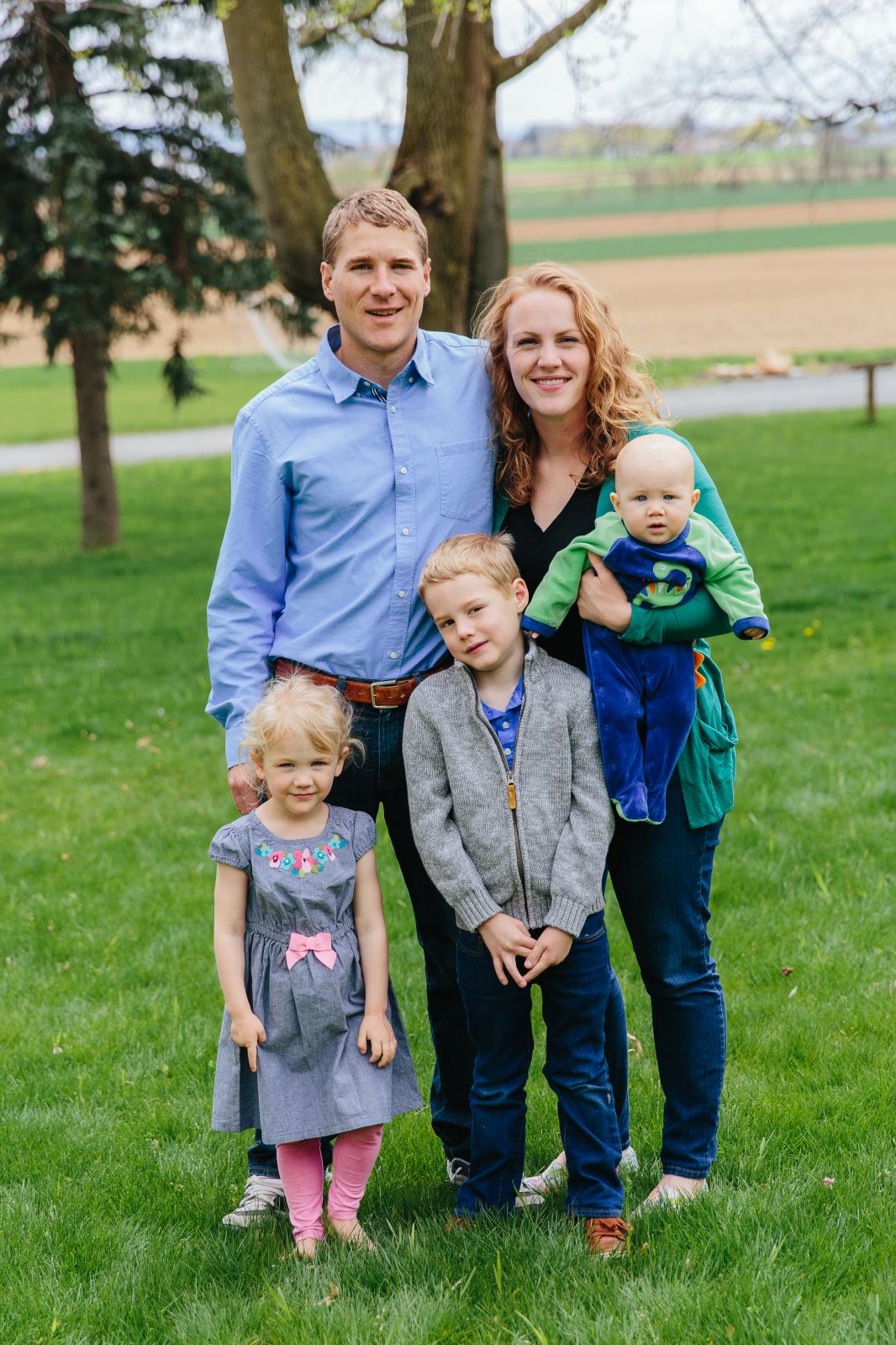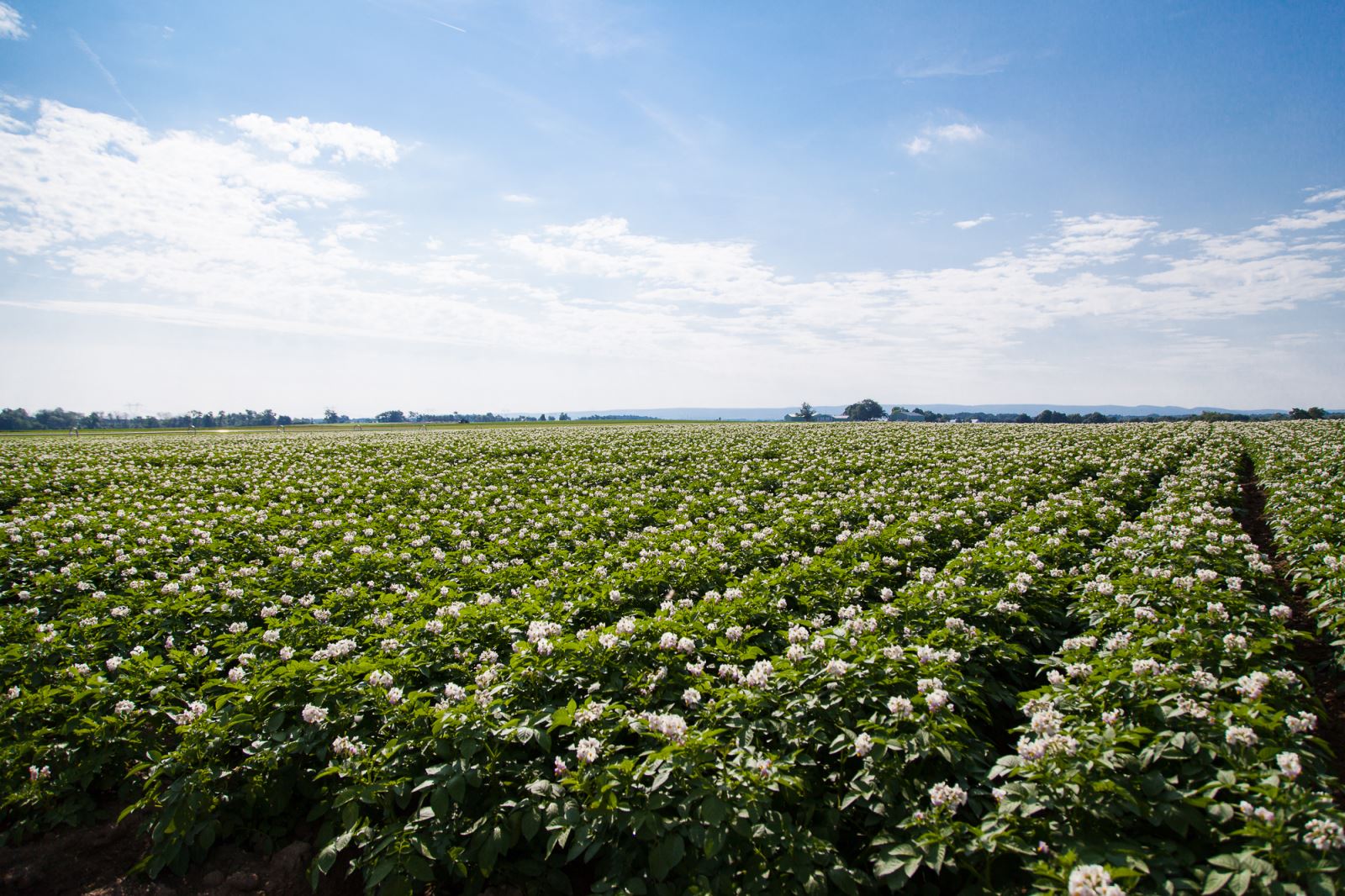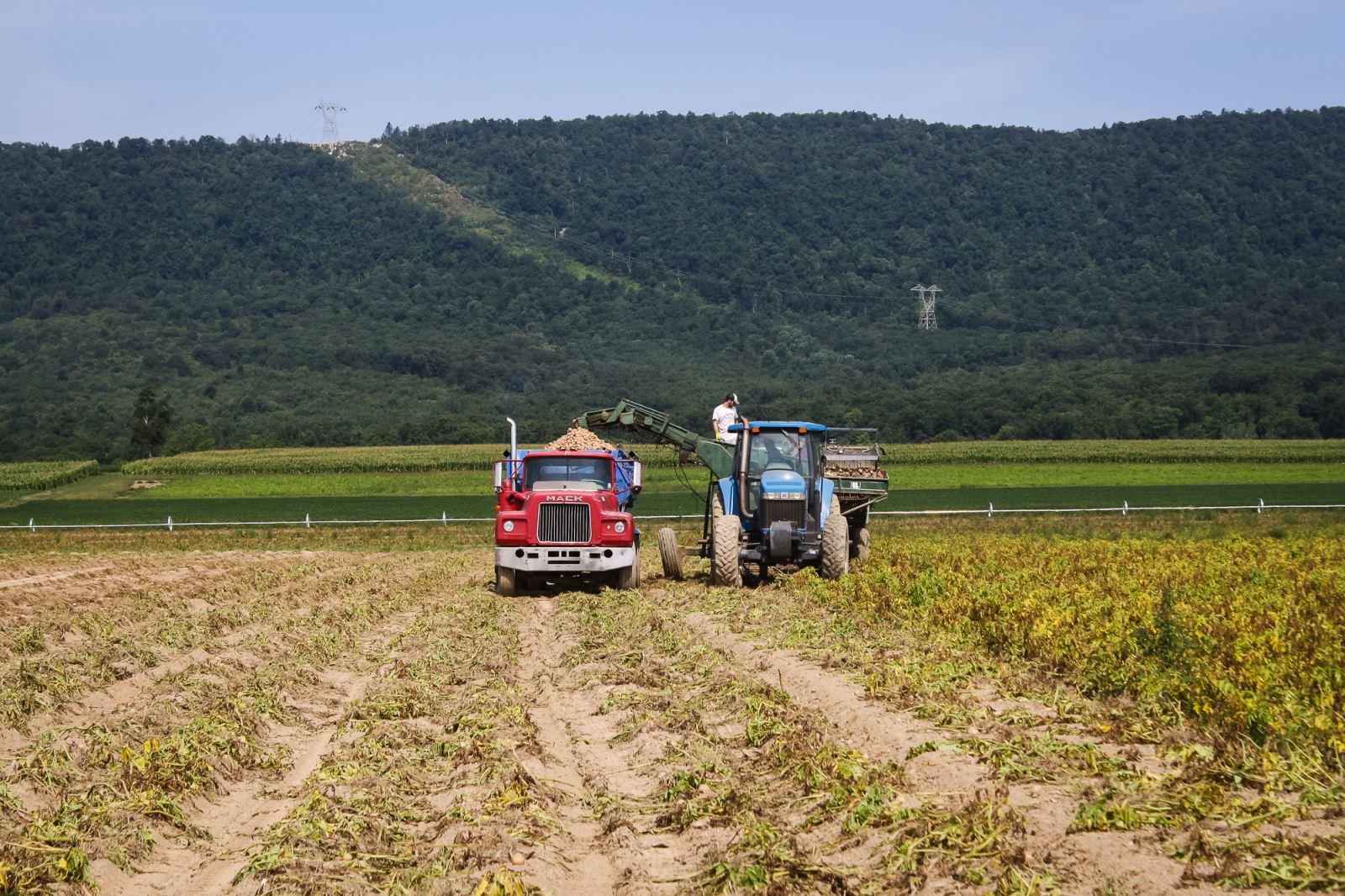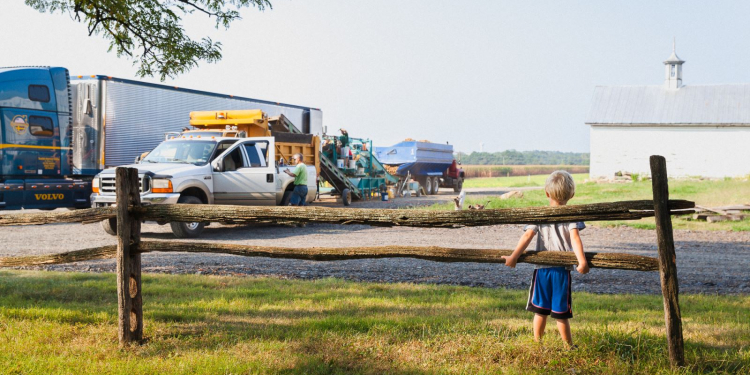A lot of farm kids—probably a healthy majority—spend a good portion of their youth grumbling about the long hours, the low wages, the heat, the cold. They get the work done, and even enjoy it from time to time, though they are careful never to let their parents know it. As they mature, farm kids discover an appreciation for all the simple yet profound lessons life on the farm has taught them, and they set off into the world to exercise their work ethic and integrity and faith somewhere else.
Bryan Bender was just such a kid. And then he wasn’t. Bryan Bender came back to the farm. “When I was a kid, I didn’t want to dig potatoes and move irrigation pipe,” Bender says. “I didn’t want to do that. But the environment it created was very healthy, and I ultimately wanted to have that opportunity for my kids and family.”
After high school, Bender attended Coastal Carolina University and then had a good job in North Carolina. But about five years ago, his father, David, offered an opportunity to return to the farm full-time. The pull of home finally proved too strong, and Bender and his young family moved back to Chambersburg, Pa., where four generations of Benders have been growing potatoes for almost a dozen decades.
Bender Farms grows about 140 acres of potatoes each year. Around half that acreage is dedicated to chipping potatoes, the other half to table stock. They are mostly round white varieties: Atlantic, Reba, Waneta, Norwis and Lamoka will come out of Bender ground in 2018. Most of the Benders’ chip potatoes are sold to Utz, though some go to other, smaller East Coast chip processors.

For the past few years, a small plot in one of Bender Farms has been dedicated to testing for the International Chip Variety Trials. This involves planting, growing and harvesting 10 to 14 varieties from seed sent from Pennsylvania State University under the same conditions as the rest of the farm’s chip potatoes, treating those varieties as the Benders would treat their own crop. Though there is little immediate financial incentive for the farm to be involved in the trial program, Bender believes that this kind of work has inherent value. He holds hope, for examples, that the trial program will ultimately find a replacement for Atlantic, a variety popular with chip processors but that is susceptible in the field to hollow heart and heat necrosis.
“It’s more of an industry issue than a personal one,” he says. “We just want to do whatever we can to help. We’re trying to be good stewards. We’ve been given a lot, and we’re trying to be generous with what we have.”
As it does in so many other regions, the climate in south-central Pennsylvania poses challenges to producing quality potatoes. The Bender family is nothing if not adaptable—they pride themselves on that particular trait, and it has enabled the farm to be a success for well over a century. The fickle weather of the Mid-Atlantic is a hurdle the family has cleared year after year for generations. A challenge that has proven more difficult to deal with is finding enough local land to make the operation everything they feel it ought to be.

“We don’t have a ton of land around that we can grow potatoes on,” says Bender. “We would like to grow more acres, but we have a hard time finding it around here sometimes.”
Searching for solutions and as-yet-unknown efficiencies has long been a driving internal force for Bender Farms. A big part of that for David and Bryan has been in-depth involvement in local, state and national trade organizations. David has served on the Pennsylvania potato research board and currently sits on the board of the Pennsylvania Co-Operative Potato Growers. Bryan is a Potatoes USA board member, where he is a member of the research committee.
“We’re a smaller farm, and being involved helps us understand what’s going on in the potato industry,” says Bryan. “It’s easy to be isolated, to stay in your little world and not have your eyes opened to the bigger picture. Our involvement gives a lot of motivation and vision of the possibilities.

“Personally,” he continues, “the camaraderie, the getting to know other growers around the country is great. It’s really cool how, even though everyone’s farm is different, it seems like everyone is doing a lot of the same stuff and has the same mission and goals.”
Ultimately, though, it all comes back to working together on that piece of land outside Chambersburg—that piece of land that has been home to the Benders for so long.
“It’s hard to grow a high-yielding, quality crop,” says Bryan. “But one of the reasons I wanted to move back to the farm is that it’s a great environment to raise a family. There are a lot of life lessons to learn: hard work, being faithful, being a good steward. There’s a lot of practical wisdom to learn from farming.”





